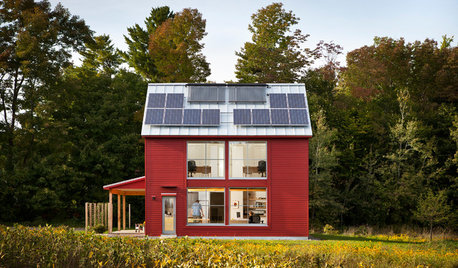There was an interesting article this morning in the Sunday Atlanta Journal-Constitution (by Margaret Newkirk - sorry no link) that brings home again the global factors effecting our cost of living and economic well-being.
Georgia Power is requesting a 40% increase in the portion of consumer electric bills that pays for fuel for its plants to cover the rising costs of fuel production at its coal-fired plants. This represents the single largest one-year rate increase request of any kind for the company and comes only a year and a half after a fuel charge increase that the company said would be enough to pay for fuel for 18 months but left it hundreds of millions of dollars in the red.
The interesting twist is that the crux of the fuel cost is not oil or gas from the Middle East but domestic coal from Appalachia and according to the company, was connected to a worldwide development in commodity prices and global shipping patterns caused by growth in China that has reverberated from Europe to Asia to Australia to the US. While debate on the rate increase hinges on how Georgia Power could have been so far off on predicting costs for the last rate increase and so derelict in controlling costs and hedging against rising commodity price increases, the basic argument that coal costs have risen dramatically is not in doubt.
The basics of the story are that Chinas growth and consumption of steel to build infrastructure has so gobbled up Asia and the PacificÂs capacity to produce raw material, that there is now a serious world shortage of coking coal to process ore into steel. This coupled with ChinaÂs demand for iron ore, have put extra stress on the worldÂs shipping capacity and has resulted in ocean freighters tripling their shipping prices prices. This increase has hit European steel mills which had been importing Australian coking coal, but with the increased costs have now turned to the US supply which is closer and cheaper to ship across the Atlantic than is Australian coal around Africa's Cape Horn.
In recent decades following the collapse of the US domestic steel industry, US Coal suppliers had had no customer for coking coal and had been focusing on steam coal for burning for electric power. Now, with money to be made in coking coal, mining companies have turned on a dime (since early 2004) and have shifted their production to coking coal leaving a shortage of steam coal for domestic electric production. As supplies shrank, prices rose from $30 to $35 a ton to $45 ton by January 2003 then up to $57 per ton by March 2003, and $65 by the end of 2004.
The prices have been a windfall for Appalachian coal companies including those that had filed for Chapter 11 bankruptcy protection before coal prices turned including some companies with long-term contracts to supply Georgia Power. Federal Bankruptcy laws allowed these Chapter 11 companies to shuck uneconomical long-term contracts to sell coal at less than the new market was paying with the judges approval. It cost Georgia Power 10 million tons of coal and forced it to purchase expensive power produced by affiliates at premium prices (but still less than the price of spot coal).
And there we have it. We donÂt have to wait for oil production to peak to see astronomical energy prices. Just a competitive global market for Appalachian coal driving up prices for steam coal to produce what used to be cheap local power, also resulting in new premium prices domestically for sharing power between sister power subsidiaries.
PS - Not to mention the fallout we can look forward to due to the new friendly environmental laws allowing Appalachian Coal Mining Companies to level whole mountains and infill valleys - and this will be done not to give us energy but to supply Europe's steel mills!













shaxhome (Frog Rock, Australia 9b)
althea_gw
Related Discussions
So, what's your typical monthly electric/gas bill?
Q
high electric bills due to hw heater
Q
I reduced my electric bill by $ 120.00
Q
Electric Bill, What do you pay each month?
Q
kingturtleOriginal Author
joel_bc
althea_gw
kingturtleOriginal Author
marshallz10
althea_gw
kingturtleOriginal Author
althea_gw